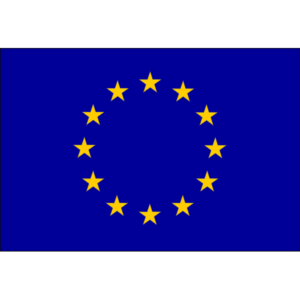Fidelity European Trust plc (LON:FEV) has announced new research by Kepler Trust Intelligence.
Overview
Fidelity European Trust (FEV) follows a long-term disciplined investment approach that emphasises selecting stocks that can grow their dividends. Rather than being a traditional equity income fund, the team see a company’s dividend as a starting point to assess its strengths, rather than as an end in itself. This comes from a key observation that companies that can grow their dividends tend to outperform those that cannot. The implementation of a strategy around this observation has generated long-term outperformance that is characterised both by outperformance in rising markets, and resilient performance in falling markets. The team do not expect, however, for performance to come in short bursts of large outperformance; rather, a compounding of incremental outperformance.
FEV is managed jointly by Sam Morse and Marcel Stötzel. Sam has managed FEV since 2011 and has been at Fidelity for more than 20 years. Sam and Marcel are supported by a team of 174 global analysts, as well as a large team of sustainability specialists.
FEV is currently geared at c. 13%, which is the highest it has been under Sam’s tenure. Sam and Marcel are not concerned with market timing, so any decisions to increase or decrease gearing relate to their views on the prospects for their portfolio companies. Given the very large universe of stocks they have to pick from, their relatively concentrated portfolio of 40 to 50 stocks and the often global nature of company revenues, they are also less concerned that specific economic forecasts for Europe are key to their success.
FEV has a current dividend yield of 2.2% and a good track record of increasing its dividend over time. The current discount of 5% is narrower than average, following a period of very strong positive performance. The FEV board has used buybacks when the discount has widened into double digits, this happening as recently as 2022.
Analyst’s View
FEV has a market capitalisation of c. £1.4bn, meaning its shares are relatively liquid and it has economies of scale. In turn, this means that its tiered management fee structure has a real impact on overall costs. Given that FEV also has an impressive and consistent long-term performance record, that opening line might seem like faint praise, but these things can really matter for long-term investors.
For some investors, what also really matters is that a fund can limit the downside in more difficult markets, while still capturing outperformance in better times. The team has done a really good job of this. FEV is not, to be clear, an absolute return fund, but a very strong emphasis on downside risks for portfolio companies has led to good relative performance in down markets.
Although the team are very much focussed on stocks, rather than any attempt to time markets, it is notable that FEV’s gearing is at its highest level since Sam became the trust’s manager in 2011, i.e. almost 13%. This reflects the change in gearing policy that was flagged in the 2020 annual report. FEV’s long-term consistent outperformance, its size and the team’s risk-averse investment style means that, in our view, it makes a strong claim to being the core European equity investment trust.
Fidelity European Trust is a European investment trust. It aims to be the cornerstone long-term investment of choice for those seeking European exposure across market cycles.


